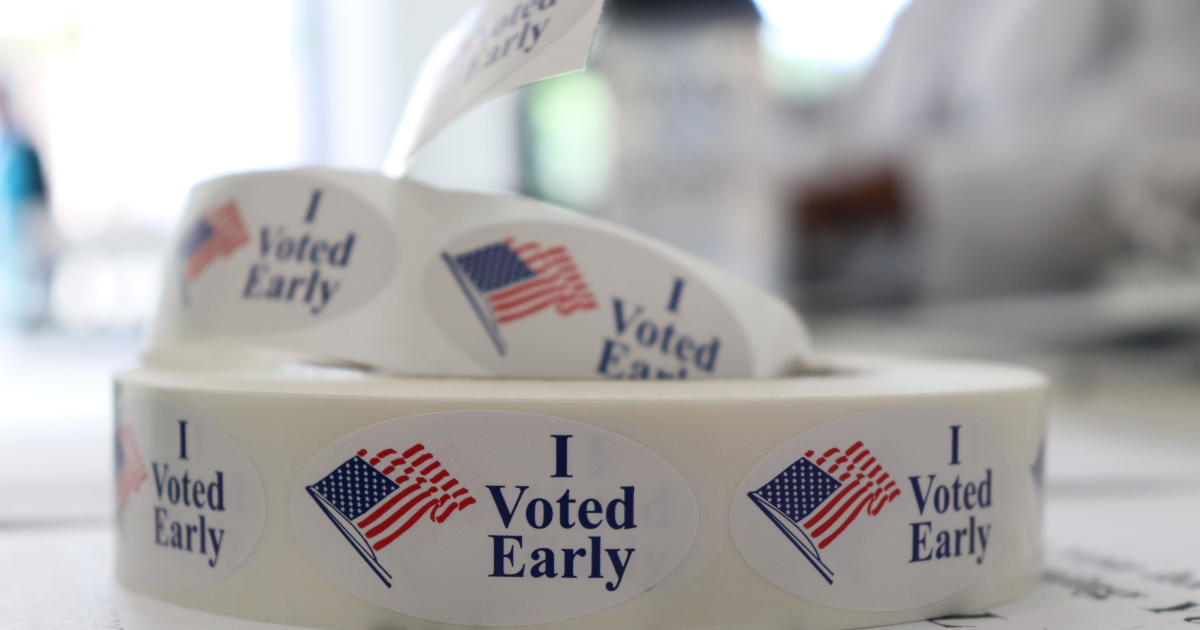
The Voting Rights Act suffers setback as federal appeals court declares private individuals cannot bring lawsuits.

On Monday, a federal appeals court declared that private individuals and organizations, including the NAACP, do not possess the right to file lawsuits under a crucial section of the federal Voting Rights Act. This ruling goes against established precedent and may weaken the protections provided by the significant 1965 law.
The 8th U.S. Circuit Court of Appeals in St. Louis ruled 2-1 that only the attorney general has the authority to enforce Section 2 of the Voting Rights Act. This section mandates the inclusion of minority-dominated districts in political maps to ensure the election of their preferred candidates.
The majority stated that while other federal laws, such as the 1964 Civil Rights Act, specify the conditions under which private groups can file lawsuits, the voting law lacks similar language.
In a separate case related to the Voting Rights Act, a 5-4 decision was made in support of Black voters in Alabama who had raised concerns about the state’s congressional districts.
Less than two weeks ago, the opinion of Gorsuch and Thomas was cited in a federal court ruling that reached a different conclusion than Monday’s decision by the court based in St. Louis.
The 5th U.S. Circuit Court of Appeals in New Orleans, which is primarily conservative, dismissed claims that the Voting Rights Act does not allow for private lawsuits. In a case involving redistricting in Louisiana, the panel stated that the Supreme Court has previously ruled in favor of individuals bringing lawsuits under Section 2, and other appeals courts have also upheld this right.
Judge Leslie Southwick, who was nominated by Bush, cited two previous cases in 1999 and 2020 that upheld the same right.
According to experts in election law, the majority of legal challenges related to enforcing Section 2 of the Voting Rights Act are initiated by individual plaintiffs. They also point out that the Justice Department has restricted capabilities to pursue these types of cases due to limited resources. Additionally, experts in voting rights have observed a discrepancy between the Alabama case that was decided by the Supreme Court in June and the recent ruling made by the appellate court on Monday.
Jon Greenbaum, the top attorney for the Lawyers’ Committee for Civil Rights Under Law, expressed confusion, stating that the current situation is illogical. He argued that if the laws prohibited private parties from initiating these cases, the Alabama case would not have been able to proceed at all.
Legal actions based on Section 2 have traditionally been utilized to guarantee that African American voters are properly represented in areas with a lengthy history of discrimination, particularly in numerous states in the South. The practice of manipulating district boundaries, also known as gerrymandering, has been employed to either concentrate Black voters into a small number of districts or disperse them in a way that diminishes the impact of their votes. If only the attorney general has the authority to initiate these types of cases, it could significantly restrict the amount of lawsuits and make their success heavily reliant on partisan influences.
It is improbable that Congress will be inclined to take action. Recent attempts to reinstate safeguards in the Voting Rights Act, which were invalidated by the Supreme Court ten years ago, have been obstructed by Republicans. The 2013 ruling in Shelby v. Holder by the justices resulted in this outcome.
Deactivated an implementation system.
This process, called preclearance, involved federal examination of proposed alterations to elections in specific states and communities with a past of discrimination, prior to their implementation.
The Congressional Black Caucus released a statement acknowledging the success of private individuals and civil rights organizations in improving representation for Black voters. This was achieved through legal challenges to congressional district maps created by Republican lawmakers in Alabama, Louisiana, and Florida.
The group stated that the ruling of the appeals court is unwise and should be challenged in the U.S. Supreme Court. They are hopeful that the Supreme Court will reaffirm citizens’ ability to file lawsuits under Section 2.
Source: cbsnews.com